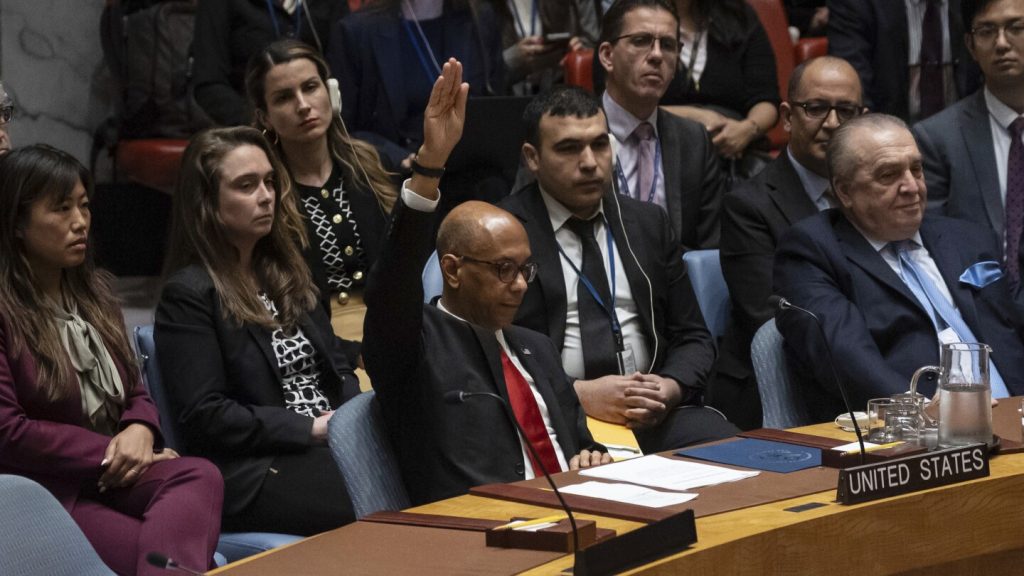The United States has vetoed a U.N. resolution that would have paved the way for full United Nations membership for Palestine, which the Palestinians have long sought. The Security Council vote was 12 in favor, with the U.S. opposed and two abstentions. The resolution would have recommended Palestine becoming the 194th member of the United Nations, with strong support from countries recognizing Palestinian statehood. However, the U.S. justified its veto by emphasizing the need for direct negotiations between the parties for Palestinian statehood.
The Palestinians faced a setback but remained determined after the U.S. veto, with Palestinian U.N. Ambassador Riyad Mansour expressing that the state of Palestine is inevitable and real. This marks the second Palestinian attempt for full U.N. membership amidst the ongoing conflict in Gaza. The previous attempt in 2011 failed due to lack of support, but the Palestinians were able to elevate their status to a non-member observer state in 2012. The resolution’s rejection highlighted ongoing disagreements over whether Palestine meets the criteria to be considered a state, particularly due to Hamas’s influence in Gaza.
Both the U.S. and Palestinian representatives reiterated their commitment to a two-state solution, but diverged on their views of the other party’s intentions. The U.S. highlighted the importance of direct negotiations for security and peace, while the Palestinians accused Israel of obstructing Palestinian sovereignty. The Israeli ambassador warned that the resolution would harm future dialogue and reward perpetrators of violence, referencing past attacks and the ongoing conflict in Gaza. The Israeli-Palestinian negotiations have been stalled for years, with divisions over statehood and territorial control.
Following the U.S. veto, Israeli U.N. Ambassador Gilad Erdan thanked the U.S. for standing against what he perceived as hypocrisy and politics. He criticized the Palestinian Authority as a terror-supporting entity and questioned their commitment to peace. Erdan accused the Palestinians of paying terrorists and not condemning violence, making it challenging for them to meet the criteria for U.N. membership. Despite this, he expressed concern that the support for the resolution would embolden Palestinian rejectionism and hinder future peace efforts.
The aftermath of the vote highlighted ongoing tensions and disagreements surrounding the Israeli-Palestinian conflict, emphasizing the challenges in achieving a peaceful resolution. The global community’s response to the U.S. veto and the implications for future negotiations remain uncertain. The rejection of the resolution by the U.S., with strong support from allies, underscores the complexities of the conflict and the differing perspectives on the path to Palestinian statehood. The decision reflects the broader dynamics shaping the Israeli-Palestinian relationship and the challenges ahead for resolving the longstanding conflict.


